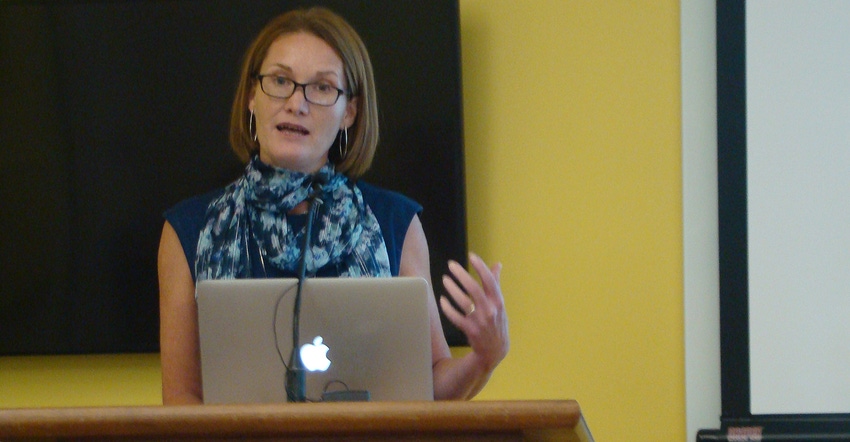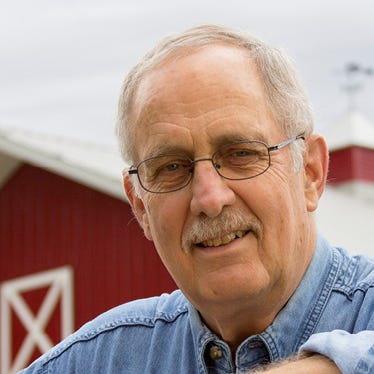August 30, 2018

Purdue University’s College of Agriculture released a report on climate change earlier this summer, based on the work of 90 Purdue professors studying the issue. Karen Plaut, dean of the College of Agriculture, addressed questions after the report. So did Laura Bowling, a Purdue agronomist and author of the report.
Key questions
Here are some of the most often-asked questions about climate change.
Is climate change human-induced?
While Bowling states unequivocally that she believes the data clearly show that climate change is due to human activity, both she and Plaut are quick to say that placing blame misses the point.
“That’s not really the issue for us,” says Plaut. “The issue we’re addressing is the conditions that our farmers are seeing out in their fields, and giving them the tools to move forward, given the data we have.”
Are extreme weather issues like flooding, extreme or exceptional drought and wildfires evidence of climate change?
“We can’t attribute any single weather event or natural disaster to climate change,” says Bowling. “Climate change is not about single weather events, but rather statistical changes in the overall data. However, increased spring flooding, increased late-season drought and wildfires are all very consistent with what our projections show.”
Couldn’t higher levels of carbon dioxide be beneficial for plant growth?
Carbon dioxide is essential for production of biomass in plants, and higher levels of CO2 can lead to increased sugar production, with increased plant growth and higher yields. However, the benefits of greater CO2 levels aren’t the same for all plant species, Bowling says. Corn already makes sugar efficiently and will see little benefit, while soybeans could benefit some. The bottom line is that while soybeans could benefit slightly from greater levels of CO2, when other factors like increased temperature, summer water deficits and other conditions are considered, overall yields, given constant varieties, are still reduced — although less for soybeans.
What about those who are skeptical about climate change?
“We realize that now some people are going to have no use for this information and not see why it’s important,” says Plaut. “But I always say that if 100% of the people believe in everything we’re doing, we’re not doing anything innovative. We always need to have some people saying, ‘What in the world are you doing?’”
Boone writes from Wabash, Ind. Tom J. Bechman contributed to this story.
About the Author(s)
You May Also Like






